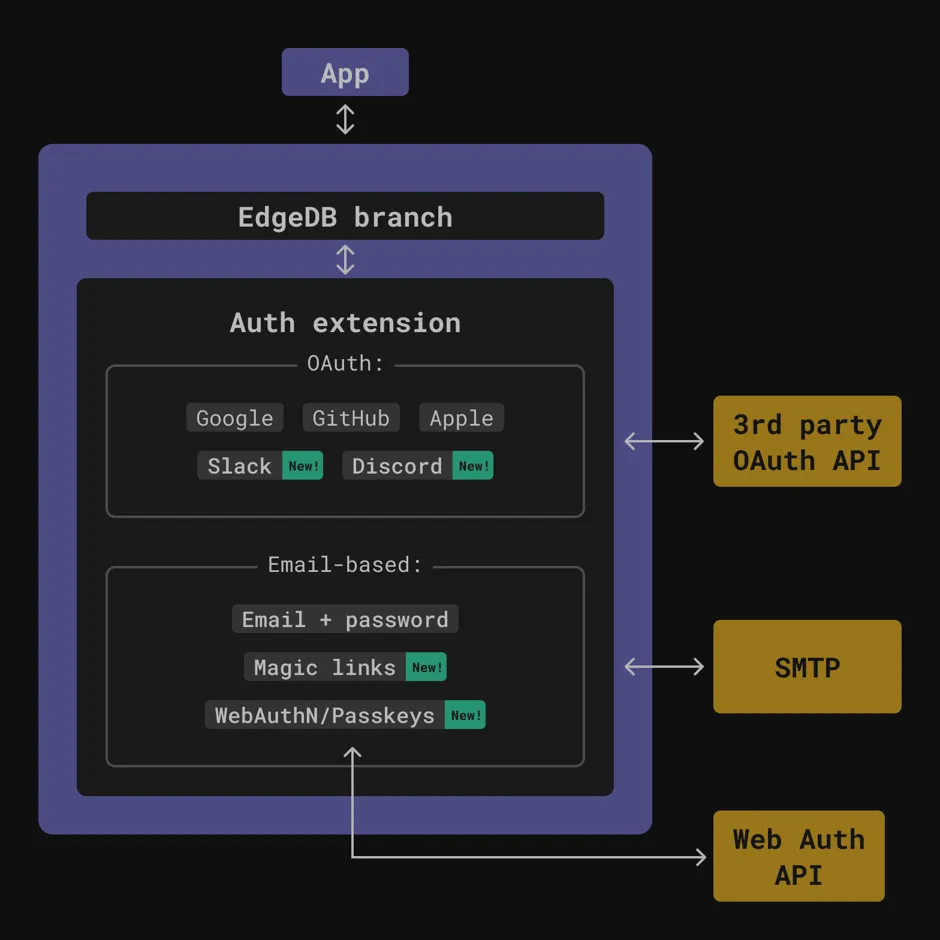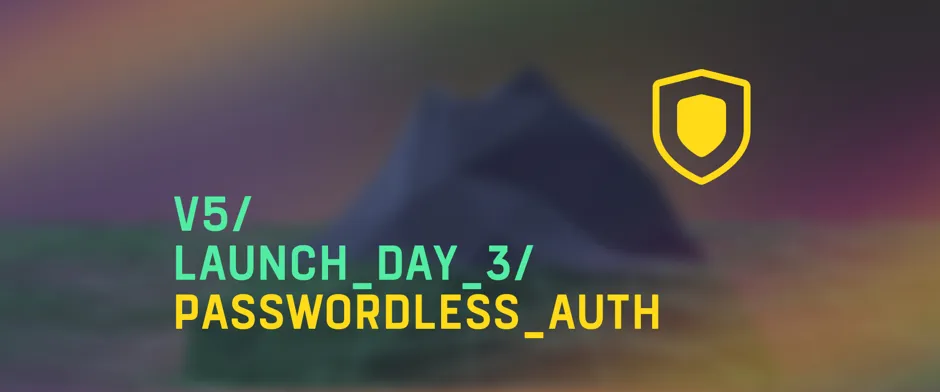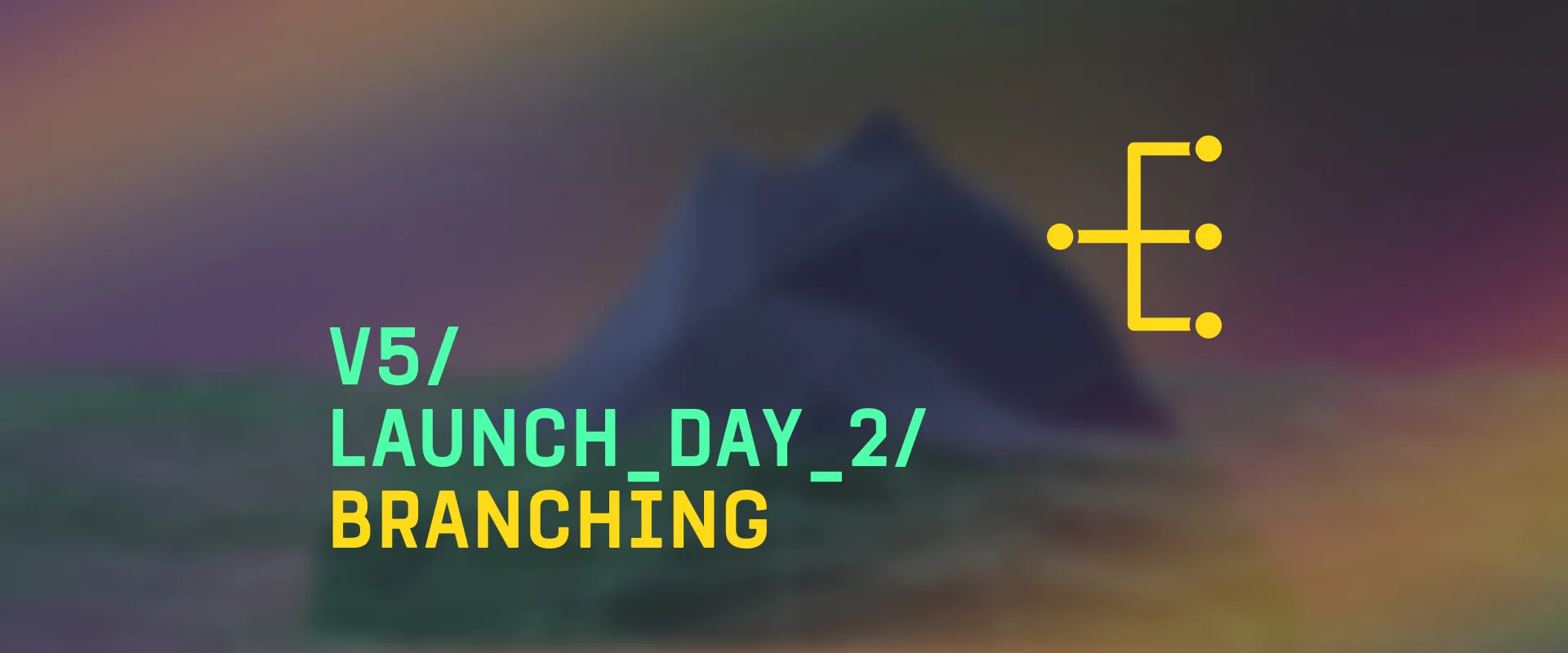Welcome to the third day of EdgeDB 5 and EdgeDB Cloud launch week!
In EdgeDB 5, EdgeDB Auth gains a couple of passwordless providers — WebAuthn and Magic Links — as well as some new OAuth providers — Slack and Discord. Before we dive into those, let’s have a quick refresher on what EdgeDB Auth is and how it works.
A Brief Introduction to EdgeDB Auth
Most apps need a way to identify and authenticate their users. When building your app, setting up authentication is often one of the first hurdles. EdgeDB’s built-in auth extension makes this as easy as adding the extension to your schema and configuring your desired authentication providers using our powerful configuration system.
Unlike many other authentication systems, EdgeDB Auth is fully integrated with the EdgeDB data model. This means that your authentication data is stored directly in your EdgeDB database, alongside the rest of your application’s data. This allows you to leverage EdgeDB’s powerful schema capabilities, like access policies for role-based access control, and the ability to layer multiple authentication factors onto a single unified User type. We handle the complexity of the various authentication schemes and ceremonies, while still providing you with full control over how your authentication data is stored and managed.

The auth extension also includes a beautifully designed, built-in authentication UI, allowing you to quickly provide core authentication screens like signin, signup, and password reset — no separate frontend work required. Simply configure the UI once, and it integrates seamlessly with the rest of your EdgeDB-powered application. And, if you want to build your own auth UI you can do it with the nice high-level API that we expose. Bottom line: EdgeDB makes implementing auth almost effortless.
Passwordless Authentication: The Future Is Here
While email-based authentication is popular, relying on passwords introduces security risks and friction for both users and developers. EdgeDB 5.0 introduces support for two cutting-edge, passwordless authentication schemes.
The Web Authentication API (WebAuthn)
WebAuthn leverages public-key cryptography to allow users to authenticate directly from their browser or device, with no shared secret like a password ever transmitted. Users can authenticate using secure hardware security keys like YubiKeys, or platform-based solutions like Passkeys provided by your user’s operating system, browser, or password manager.
After being proposed several years ago, WebAuthn has now reached mainstream adoption across all major browsers and platforms. We’re excited to offer a seamless WebAuthn integration in EdgeDB 5.0, allowing you to implement this secure authentication method in your applications today.
Magic Links
Another popular passwordless approach is “Magic Links” authentication. Rather than entering a password, users simply provide an email address. A unique, self-expiring login token is then emailed to them. Following the link in that email automatically authenticates the user — no password required!
Magic Links provide a passwordless experience that combines high security (since the links are scoped to originate from requesting device) with an effortless authentication flow for end users. It’s akin to the familiar “forgot password” reset flow, but without the password at all.
New OAuth Providers: Slack and Discord
In EdgeDB 5.0, we’ve added support for allowing users to authenticate with their existing Slack or Discord accounts. These integrations unlock new possibilities for building applications and services that interact with these popular chat/communication platforms.
Slack has become the standard for workplace communication and collaboration for many businesses and teams. By allowing Slack authentication in your EdgeDB app, you can build rich integrations that connect your app’s data and workflows to Slack channels, messaging, and bots. Automatically provision accounts based on Slack workspace membership, or build Slack apps that leverage your app’s data.
Discord has a rapidly growing user base, particularly among online communities. If you’re building a community app, game, or any service catering to these users, the Discord OAuth integration allows a smooth onboarding experience by authenticating with their existing Discord credentials. You can then customize user experiences or integrate Discord capabilities based on roles, servers, and other Discord data.
These new OAuth providers join existing support for authentication via Google, GitHub, Apple, and Azure. Combined with EdgeDB Auth’s ability to layer multiple authentication providers onto a single user model, you have immense flexibility in crafting the ideal authentication experience for your application’s audience.
What’s next?
The EdgeDB 5.0 release packed a lot of great new authentication capabilities, but we’re not stopping there! A few key improvements are already being planned for EdgeDB 6.0:
Customizable Authentication Emails
While the built-in auth UI provides a clean experience out-of-the-box, we know emails are an important branding and user experience touchpoint. In EdgeDB 6.0, we plan to add the ability to fully customize the email flows. This will allow you to implement your own designs and messaging to provide a seamless transition from your app’s UI right into the inbox.
Generic OpenID Connect Support
EdgeDB 5.0 shipped with direct integration for popular OAuth providers like Google, Github, Apple, Azure, and now Slack and Discord. But we recognize there are countless other authentication providers out there. In EdgeDB 6.0, we plan to investigate supporting a generic OpenID Connect integration that could allow connecting EdgeDB Auth to any OpenID Connect compatible provider with just a few configuration settings.
As always, we’d love to hear what authentication capabilities are most important for your use cases. Authentication is a critical part of any application, and we’re committed to making it as secure, extensible, and painless as possible in EdgeDB. The road to passwordless is an exciting one. We hope you’ll join us!
By the way, the EdgeDB Launch week is still going strong! Keep an eye out for some exciting announcements coming up on Thursday and Friday 🎉


